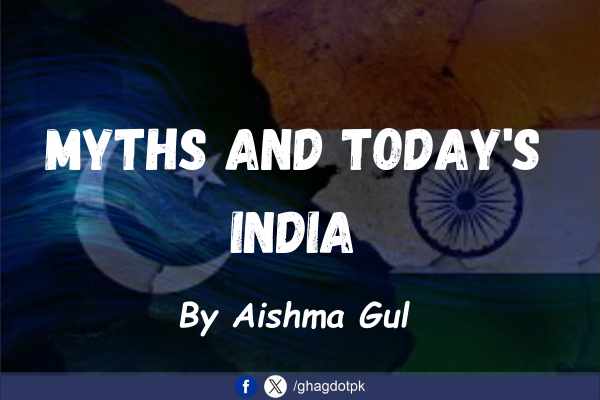By Aishma Gul
“Non-violence is the greatest force at the disposal of mankind. It is mightier than the mightiest weapon of destruction devised by the ingenuity of man.” – Mahatma Gandhi
October 2nd marks the International Day of Non-Violence, a global event dedicated to fostering a culture of peace, tolerance, understanding, and non-violence worldwide. While the day honors the birth of Mahatma Gandhi, a pioneer of non-violent resistance, it also celebrates the achievements of all individuals and organizations that have promoted peaceful principles throughout history. The International Day of Non-Violence aims to inspire people from all walks of life to accept nonviolence as a potent weapon for social change and conflict resolution by raising awareness and fostering education.
Core Principles of Non-Violence:
– Non-violent resistance: Achieve social change without harming others.
– Protest and persuasion: Organize peaceful marches, vigils, and demonstrations.
– Non-cooperation: Withdraw support from unjust systems and institutions.
– Non-violent intervention: Use peaceful tactics like blockades and occupations to address injustices.
As India commemorates Gandhi’s teachings, recent events illustrate a growing disparity between his principles and escalating fanaticism and intolerance in the country.
Religious Intolerance in India
Religious intolerance in India has become an increasingly serious problem. A harsh example came when 12 Islamic academics, including Maulana Kaleem Siddiqui and Umar Gautam, were sentenced to life in jail for encouraging Hindu conversions to Islam, while four others received 10-year sentences. According to Indian media, the scholars were convicted in a religious conversion case in 2021.
This event is part of a larger pattern in India, where religious minorities are frequently persecuted. The 2020 Delhi riots, sparked by protests against the Citizenship Amendment Act (CAA), killed over 50 people, the vast majority of them were Muslims.
Another worrisome occurrence is the ban on hijabs at Karnataka educational institutions, which has sparked protests and court battles. Many regard the ban as an infringement on religious freedom, and it reflects widening religious divisions. According to a Pew Research Centre research from 2022, while 84% of Indians believe religious tolerance is important, a sizable number believe the state favors Hinduism.
In an international twist, Rensen Jose, an Indian citizen, has been issued a red notice in connection with the 2023 pager explosions in Lebanon, which killed and injured several people. Jose, who escaped to the United States, is accused of facilitating the attacks by supplying the pagers used in the blast. The involvement of an Indian in an incident having international consequences raises concerns about cross-border extremism, intensifying global security issues.
Pakistan’s Role in Promoting Non-Violence
In stark contrast, Pakistan’s efforts to foster peace and eradicate religious intolerance are especially notable. The country has made tremendous progress in defending minority rights, as evidenced by the 2023 release of over 100 Hindu prisoners in Sindh, which demonstrates its dedication to interfaith harmony. The opening of the Kartarpur Corridor, which allows Indian Sikhs to visit one of their most sacred places in Pakistan without a visa, is a strong message of religious tolerance and non-violence.
Pakistan has also launched several deradicalization and rehabilitation programs, like the “Sabaoon” program in Swat, which focuses on educating and reintegrating former militants by emphasizing nonviolence and social engagement above force. The National Action Plan (NAP), which was implemented in 2014, symbolizes Pakistan’s commitment to peace by integrating security operations with non-violent tactics such as education and interfaith engagement. Pakistan’s emphasis on deradicalization programs, youth participation, and community outreach reflects a larger commitment to long-term peace. Pakistan’s security forces have contributed to these non-violent initiatives by safeguarding the protection of its residents and promoting a more stable and tolerant society.
India’s Drift from Gandhian Philosophy
India, long a model of nonviolence under Mahatma Gandhi’s guidance, is currently experiencing a disturbing increase in religious intolerance and internal violence. Policies such as the Citizenship Amendment Act (CAA) and mob lynchings in the name of cow protection demonstrate a dramatic deviation from Gandhi’s principles. This rising religious extremism not only destabilizes India internally, but also has an impact on its neighbors, particularly Pakistan, by raising regional tensions. Anti-Pakistan rhetoric and acts against Muslims in India exacerbate poor diplomatic relations between the two countries, heightening the likelihood of conflict in South Asia.
As the world marks the International Day of Non-Violence, it is essential to reflect on the principles of peace and tolerance. While India faces growing challenges of religious intolerance, Pakistan continues to make strides in promoting non-violence and religious harmony both domestically and internationally. Through its military peacekeeping efforts and government policies aimed at countering extremism, Pakistan offers a model for nations striving to create a more peaceful, tolerant society.






